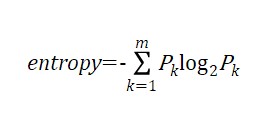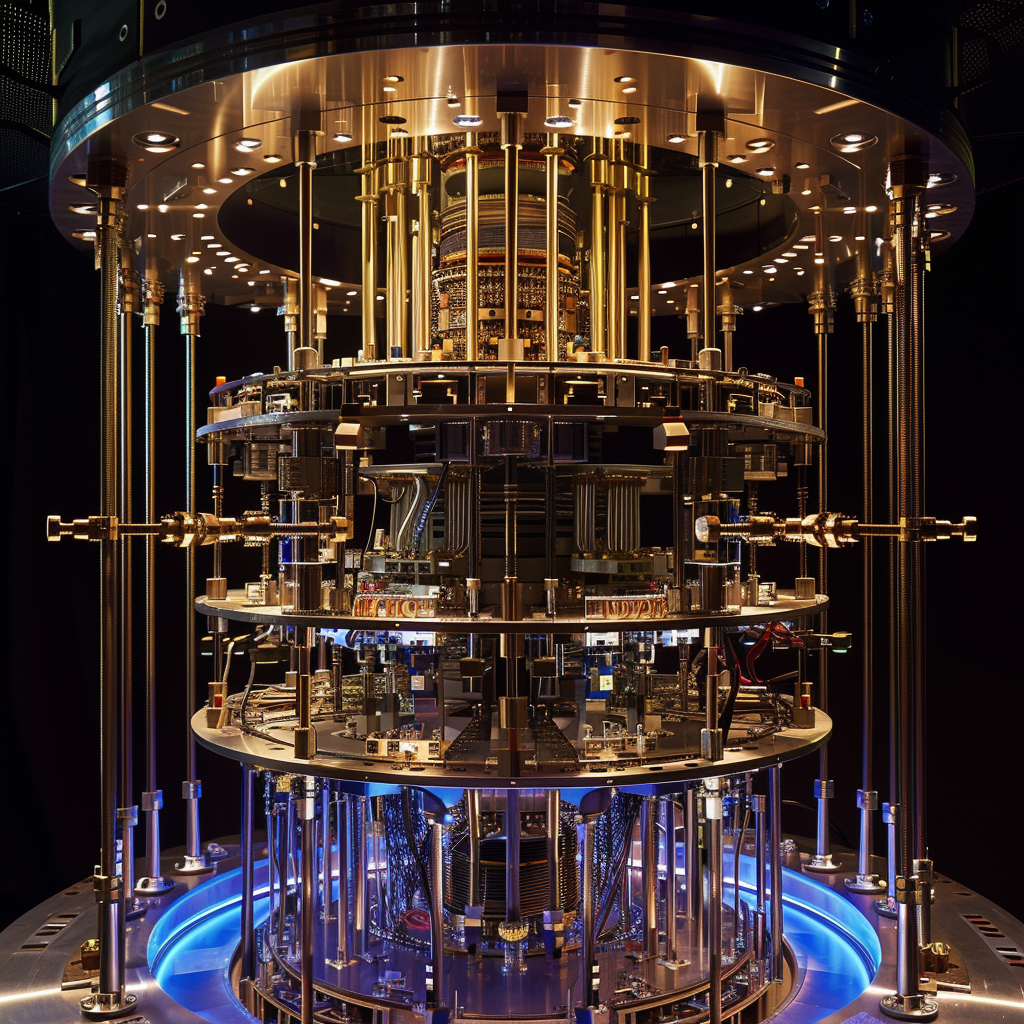Quantum mechanics has been debated and developed over the course of its 100-year history, and is now focused on engineering applications with the development of quantum computers. However, it is still questionable whether quantum computers can fully simulate and predict all phenomena in the universe, and there are complications due to human and math limitations.
Quantum mechanics has developed over the course of its nearly 100-year history amid much debate. Initially, it met with opposing arguments due to its interpretation outside of the conventional wisdom of science, but today, the theory is more or less established. While the main discussion so far has been focused on the natural science question of how to interpret quantum mechanics, the future will be about how to use the theory in engineering. Quantum computing is an important concept that represents this. In his book, Programming the Universe, MIT professor Seth Lloyd presents his thoughts on the universe and quantum computers, as well as his predictions for the future.
He views the history of the universe in terms of information. Information about cosmic phenomena is represented by bits that represent 0s or 1s. In the history of the universe, a small number of bits were initially sufficient to represent the universe, but as various states occurred due to cosmological phenomena, a large number of bits became necessary. To explain the process of increasing the number of bits required, the author introduces the concept of entropy from statistical mechanics. After arguing that the number of bits is an entropy that represents the disorder of the universe, the author concludes that the second law of thermodynamics, which states that the entropy of the universe as a whole is non-decreasing, leads to the conclusion that the number of bits in the universe is also non-decreasing. I think the second law of thermodynamics is a physically valid law and the view of the number of bits as entropy is an accurate interpretation. Interestingly, in my AI class, I found an example where the amount of information or number of bits is understood as entropy. If we have an artificial intelligence model that can have a total of m states, and the probability of being in the kth state is Pk, the entropy is expressed as follows

Entropy is also defined similarly in the fields of communication engineering and information theory to calculate the amount of information to be conveyed and the loss of information.
It is particularly noteworthy that quantum mechanics can be expanded from mere academic curiosity to practical applications. This leads to the prediction that advances in quantum computing will have a significant impact on our society and technology as a whole. For example, quantum computers have the potential to solve complex problems that classical computers have been unable to solve. This could revolutionize fields as diverse as cryptography, drug discovery, and the simulation of complex systems. Therefore, along with the theoretical advances in quantum mechanics, it is also important to develop technological advances that will allow us to implement and apply them in practice.
In the end, the authors conclude that the universe and quantum computers are indistinguishable and that the entire universe can be simulated with quantum computers. Unlike bits used in classical computers, quanta can have both states, 0 and 1, at the same time. The universe is like a quantum computer that computes quanta with this information through the phenomena of quantum mechanics. He also argues that if we build a computer using the properties of quanta, we will be able to simulate complex phenomena that are not possible with conventional computers.
While I’ve briefly outlined the author’s arguments and evidence in the book, there are enough counterarguments to make me reconsider. There are two main reasons for this: humans are part of the universe, and not everything in the universe can be analyzed mathematically.

First, we can question the claim that quantum computers are used to simulate the universe. Simulating something means that it has a purpose and a subject. Simulations will be planned by human scientists, and they will have a purpose: to predict the outcome of certain phenomena in the future. However, humans and the process of achieving the goal are also part of the universe and its phenomena. In the author’s argument, the universe and the quantum computer are the same, so humans and the purpose of the simulation are also part of the quantum computer. In other words, when a quantum computer predicts the universe, the simulated universe must include the quantum computer and humans. This can lead to causally awkward situations where a quantum computer expects the outcome of a simulation to be the same universe it is already a part of. For example, let’s say a quantum computer runs a simulation and predicts that a meteorite will hit the Earth. If you then use a nuclear bomb to stop the meteorite from hitting the Earth, you have not done an accurate simulation. The quantum computer’s prediction of a collision between the Earth and the meteorite is the exact opposite of the actual outcome. It only predicted a localized phenomenon in the universe: the meteorite would hit the Earth. Since the universe also includes scientists and quantum computers who want to know the likelihood of a meteorite impact, there was no prediction of how humans would react to the simulation results or whether the results would be true or false.
This is not to say that the claim that quantum computers are the universe is entirely false, as it is a fairly esoteric and physics-intensive problem. On the other hand, the meteorite example above suggests that there cannot be another quantum computer outside of the universe that has the same performance as the universe. Even if humans were to implement a quantum computer, it would not be identical to the universe. It would merely help humans understand some natural phenomena that cannot be explained by classical computers due to their immense computational power.
Next, we can argue that the exact interpretation of the universe is mathematically impossible. If quantum computers were to provide an accurate description of cosmic phenomena, it would be through mathematical calculations. Without math, it’s impossible for humans to understand nature accurately. However, many things in the universe cannot be analyzed numerically. Even if the mathematical description of nature and the probabilistic description of quantum mechanics are consistent with certain real-world phenomena, they don’t explain everything around us. A prime example is human emotions. Human emotions are not quantifiable and are determined by a huge number of factors. These factors cannot be described mathematically, and the exact boundaries between them are very fuzzy. This is due to the highly complex system of the human body and the relationships between emotional factors that transcend mathematical structures. At both the macro and micro levels, these complex systems are often not well described by math. In the case of weather forecasting, supercomputers and others try to make mathematical predictions, but they are often wrong. Sometimes, the predictions made by the complex human brain are more accurate. An example of this is Korea’s 24 seasons, which are better predicted by the Korea Meteorological Administration than by computers.
Humans try to understand and predict all phenomena in the universe. Physicists try to explain phenomena mathematically through theory and experiment, and engineers try to fit natural phenomena into their models to get the results they need. Newtonian mechanics and electromagnetism in the 17th, 18th, and 19th centuries led to major advances in our understanding of nature. But they were only approximate descriptions based on relatively simple math, and by the 20th century, it was clear that they were not an accurate description of the universe. Quantum computers are a human-only theoretical system that takes these approximate descriptions and puts them into a more microscopic perspective. Centuries later, it may be overturned by another higher theory, as happened to Newtonian mechanics, or phenomena may be discovered that contradict quantum computer theory. This is because quantum computers are also based on math, and math is a tool for humans to view nature, not the universe itself. Furthermore, the authors’ claim that the amount of information in the universe can be calculated and that quantum computers can keep up with it is questionable. Calculating and comparing the amount of information in the universe is only an approximation within the limits of math, and the amount of information in the universe as a whole is not mathematically describable.
The previous discussion of the human universe and the limitations of mathematics can be considered in conjunction with Heisenberg’s uncertainty principle. A qualitative understanding of the uncertainty principle is that when you measure one dimension of a natural phenomenon, another dimension changes. In other words, you can’t get accurate information about two or more independent dimensions at the same time. It’s similar to how humans and computers are part of the universe, so we can’t take into account changes in ourselves or the computer at the same time. Another way to look at it is that uncertainty arises because mathematics cannot describe entities like multidimensional vectors that can represent multiple pieces of information about the universe simultaneously. Therefore, quantum computers cannot simulate the universe identically because they run into the problem of indeterminacy. As mentioned earlier, it is possible to make predictions about problems that are part of the universe, but in terms of the uncertainty principle, only one dimension.
Despite the above arguments, I do not believe that quantum computers will explain everything in the universe or be the pinnacle of natural science. At some point, we will run into the limits of our universe and the limits of math. As is always the case with scientific progress, we will have to move towards other theories or find new explanations that overturn the existing math. Despite the author’s grandiose description of quantum computers in the book, comparing them to the macrocosm, only a very basic quantum computer has been built to date. This is because, just as it takes a lot of effort to make a big profit, using computationally powerful quanta requires great skill in handling sensitive quanta. In this situation, rather than expecting to be able to explain the entire universe with a quantum computer, it seems preferable to use quantum computers for individual phenomena or to solve computational algorithms that cannot be solved by conventional computers.
Based on the current research knowledge in each field, I think that if we apply a model that is suitable for quantum computers and simulate it, we can get meaningful results. I expect that quantum computers will play a big role in helping quantum mechanics become the Newtonian mechanics and electromagnetism of the 21st century. Advances in quantum mechanics and quantum computers are not just about satisfying academic curiosity, they can make a real difference in our lives. It will be a great example of how science and technology can improve our lives and open up new possibilities.
 I’m a blog writer. I want to write articles that touch people’s hearts. I love Coca-Cola, coffee, reading and traveling. I hope you find happiness through my writing.
I’m a blog writer. I want to write articles that touch people’s hearts. I love Coca-Cola, coffee, reading and traveling. I hope you find happiness through my writing.